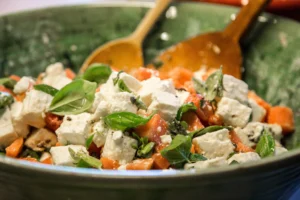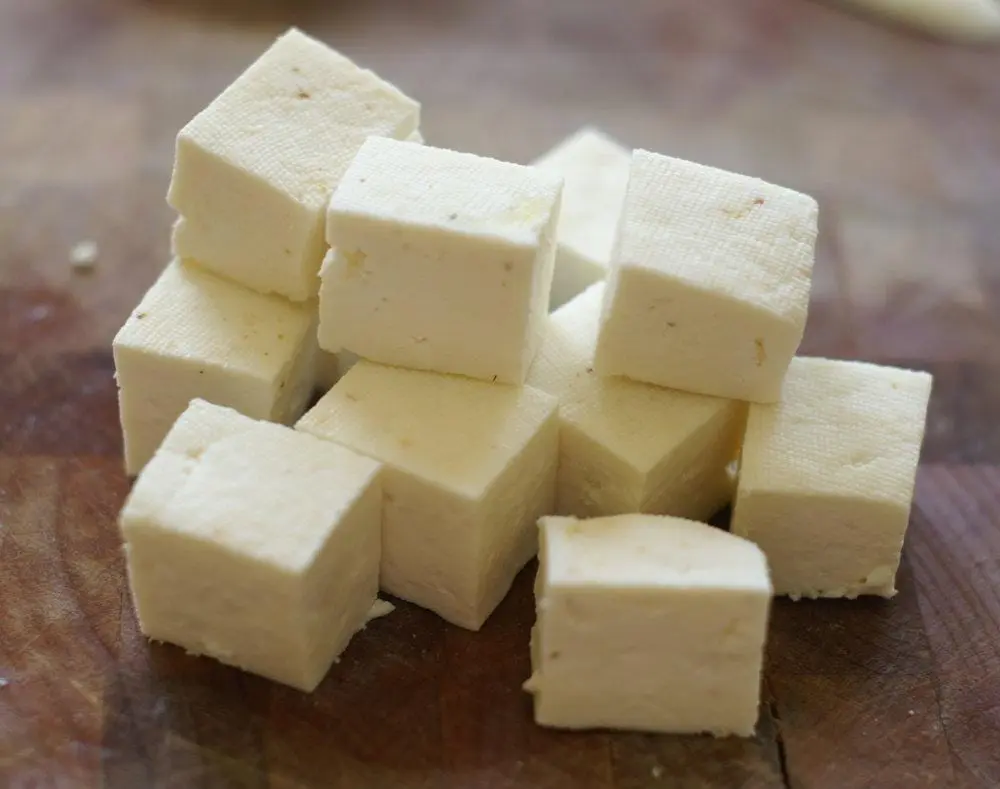In this article, we discuss Homemade Paneer and Its Advantage also known as Indian cottage cheese, which is a popular ingredient in many Indian dishes. It is a versatile ingredient that can be used in a variety of dishes such as curries, snacks, and desserts. Paneer is a rich source of protein and is also an excellent source of calcium, making it a healthy ingredient to add to your diet. Making paneer at Home is not only easy but also economical.
Here are the steps to make paneer at home:
Ingredients for homemade paneer:
1 litre of full-fat milk
1-2 tablespoons of lemon juice or vinegar
Cheesecloth or muslin cloth
Colander
Weights (optional)
Important instructions:
In a heavy-bottomed pan, heat the milk on medium-high heat. Stir the milk occasionally to prevent it from burning.
Once the milk comes to a boil, turn off the heat and add the lemon juice or vinegar. Stir the milk gently and you will see the milk starting to curdle. If the milk doesn’t curdle, add a little more lemon juice or vinegar.
Place a cheesecloth or muslin cloth over a colander and place the colander over a bowl. Pour the curdled milk into the cheesecloth-lined colander. The whey will drain into the bowl, leaving behind the curdled milk.
Rinse the curdled milk under cold running water to remove any lemon juice or vinegar. This will prevent the paneer from having a sour taste.
Gather the edges of the cheesecloth and squeeze out the excess water. If you want a firmer paneer, place a weight on the cheesecloth-wrapped paneer and let it sit for an hour or two.
Remove the paneer from the cheesecloth and cut it into cubes or crumble it. Your homemade paneer is now ready to be used in any recipe.
Tips:
Use full-fat milk to get creamier and richer paneer.
You can use lemon juice or vinegar to curdle the milk. However, you can also use yoghurt or citric acid.
Don’t throw away the whey that is collected in the bowl. It can be used as a substitute for water in dough or used in soups and stews.

There are several advantages of homemade paneer:
Quality Control: When you make paneer at home, you have complete control over the quality of ingredients used, ensuring that you use only fresh, high-quality milk to make the paneer. This can result in a better-tasting and healthier paneer.
Cost-effective: Buying paneer from the store can be expensive, but making it at home can be much more cost-effective. You only need a few simple ingredients to make paneer at home, and the process is relatively easy.
Versatility: Paneer is a versatile ingredient that can be used in a wide variety of dishes. When you make paneer at home, you can use it in your favorite recipes or experiment with new ones.
Health Benefits: Paneer is a rich source of protein and calcium, making it a healthy ingredient to add to your diet. When you make paneer at home, you can ensure that it is made from high-quality milk and is free from any harmful additives or preservatives.
Environmentally Friendly: Making paneer at home can be more environmentally friendly than buying it from the store. By making your own paneer, you can reduce packaging waste and carbon emissions associated with transportation.
In conclusion, making paneer at home is an easy and cost-effective way to add this versatile ingredient to your diet. With a few simple steps, you can make your own paneer and enjoy its creamy texture and rich taste in a variety of dishes.
See the article also: Make Healthy Pasta At Home
Disclaimer -In these simple recipes and cooking tips blog or website, the ingredients may or may not accept the specific body and cause allergy or side effects. Users are advised to be cautious and to take their own decisions in using the ingredients/recipes recommended. simplerecepieandcookingtips.com or its owners will not be responsible for any issues relating to the usage of the given recipes It should not be considered a substitute for a professional nutritionist’s advice.




